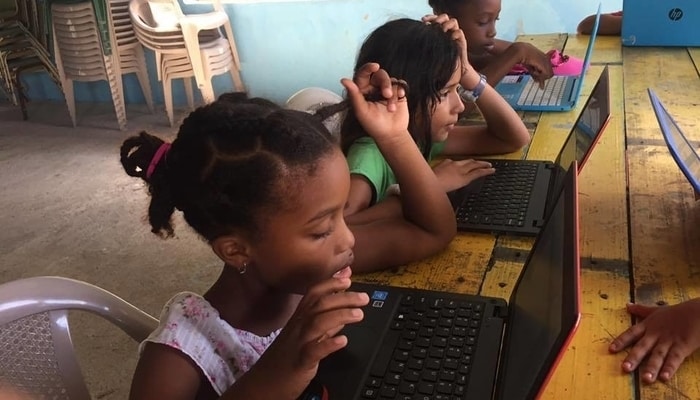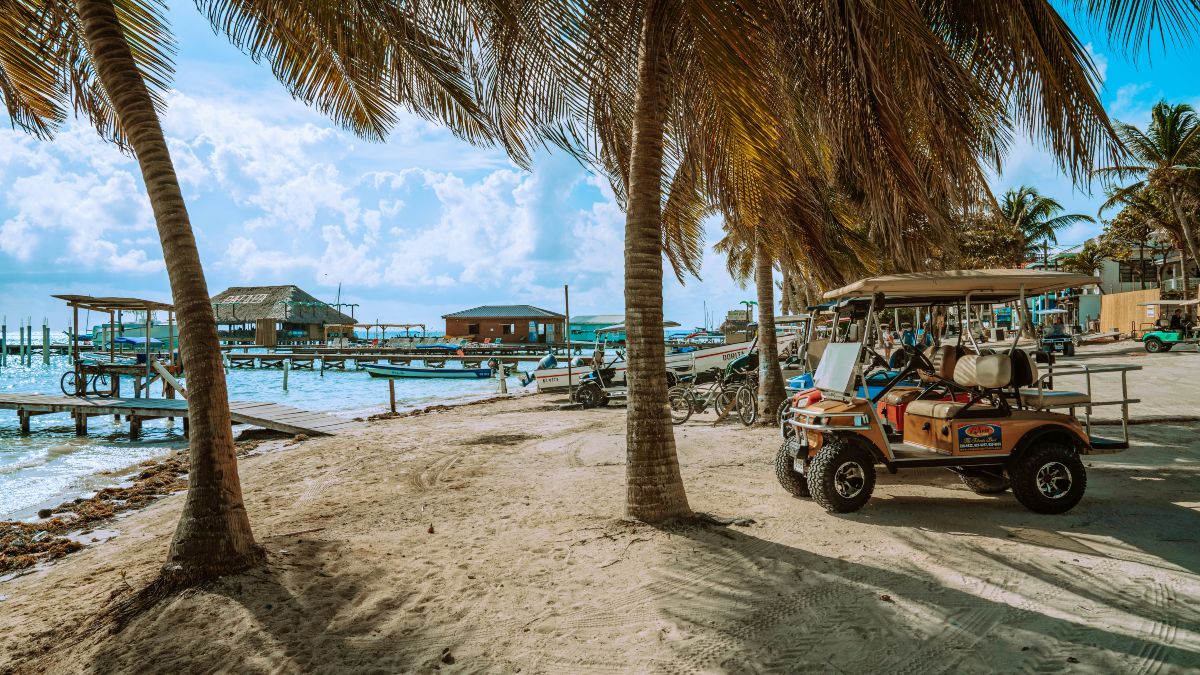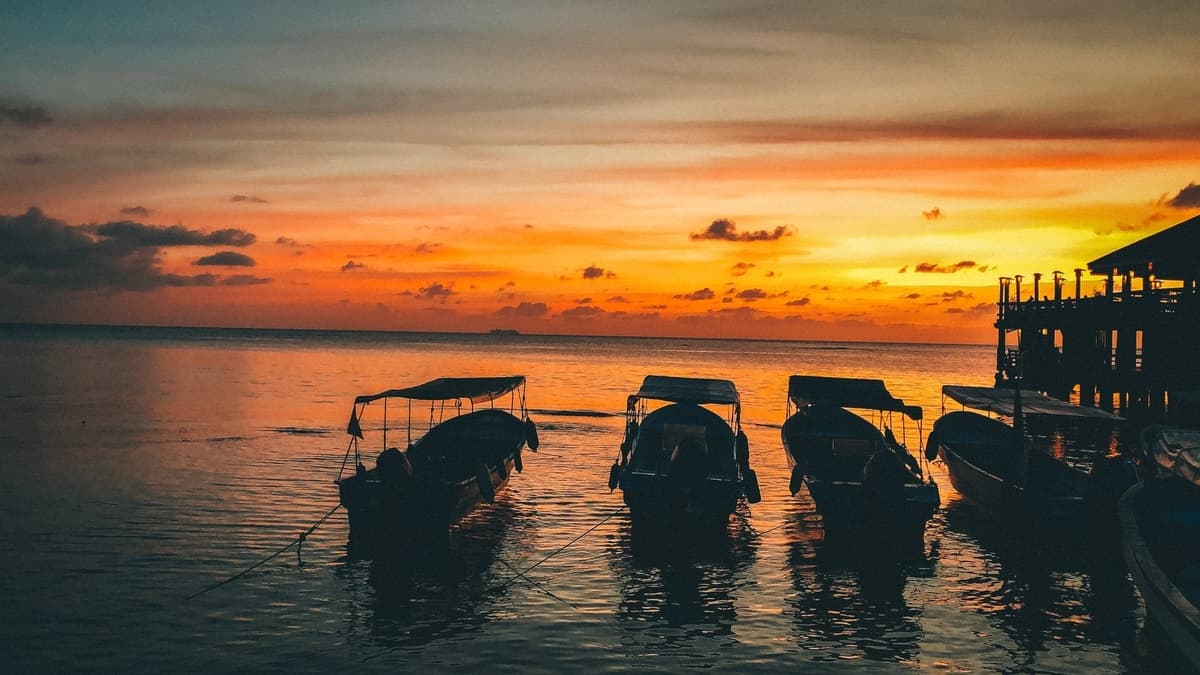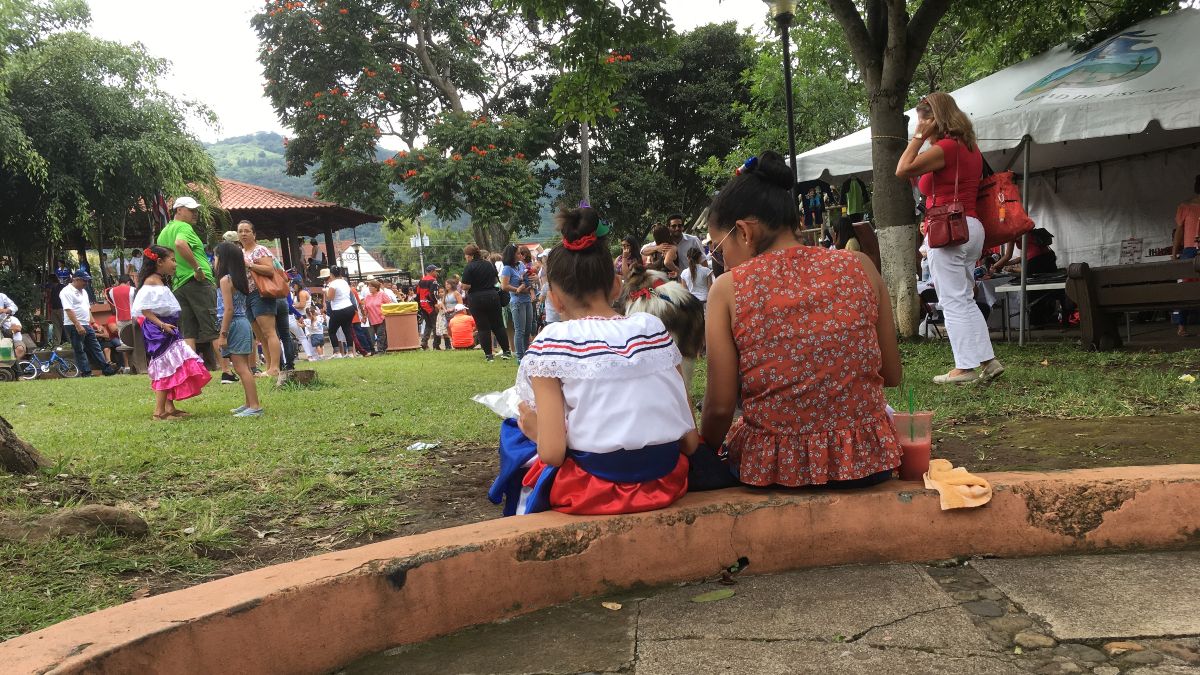Eve Horowitz is worried. She’s sitting in Pennsylvania while El Porvenir, Honduras is under threat from one of the most brutal rainy seasons that Central America has experienced for a long time.
We’re at the end of October 2017 and everybody is looking forward to November. November in Central America is a transition month from the wet to the dry season.
But the 2017 rainy season was crazy wet and as Horowitz and I chat on Skype, I understand where her mind is at.
“They’re underwater in El Porvenir,” she says. “We’ve got about a foot of water on the streets, that’s how flooded we are, but we hope within the next day or so it’ll go back down…. I’m just hoping we have a beach left when this is over”.
“Yesterday was the worst day we’ve had in a few years. I was looking at photos of my volunteers walking through the streets and the water is up to their knees. The last time that happened was in 2013.”
El Porvenir is on the northern coast of Honduras, on the Caribbean Sea, about 20 minutes west of La Ceiba. It’s a small town and a quiet, friendly one. But it’s poor with few opportunities for its citizens. Life is hard for most people and the flooding does not make things easier.
Recently, El Porvenir had one paved road. They built more over the past year, but they came at a cost. The roads are, in Horowitz’s words, “banked a little weird”.
So when the rain comes, the water bounces off the solid surface and pours straight into peoples homes. And that’s even without the widespread flooding.
Horowitz is the founder and director of Honduras Child Alliance (HCA), a small NGO based in El Porvenir.

Honduras Child Alliance works to provide educational enrichment and healthy living programs to local children. The aim is to give people in El Porvenir the opportunity to expand their knowledge base and provide the means for them to finish formal education. Then they can go to college or get jobs in fields unavailable to them otherwise.
Apart from some managers on the ground, volunteers perform the work of HCA. The organization has around eight to ten people volunteering in Honduras at any one time. Horowitz would like to grow that number to between 15 to 20 to expand the program and reach more people.
You need no particular qualifications to volunteer with HCA. All you need is an open mind and an open heart.

“The Honduras Child Alliance projects were initiated in response to our awareness that the cycle of poverty in Honduras is perpetuated through lack of education.”
Some Background

Eve Horowitz first came to Honduras in the early 90s when her father purchased land on the Bay Island of Guanaja to retire on.
In 2003, she had what she calls her “moment” while en route from mainland Honduras out to Guanaja with her family.
“Everybody has that moment. That was my moment where I went oh my gosh! I was at the airport in La Ceiba and I’m looking at this little boy the same age as my little boy. He’s running some kiosk selling snacks and sodas, and my little boy’s sitting playing with his Gameboy which could be worth about four months salary for this kids family. That was my moment of going wait a minute if we’re going to be part of this country we need to do something more.”
From that moment she sponsored local kids, ending up on the board of directors of the sponsorship organization. In the following years, she helped to establish a school and a children’s home.
Beginnings of Honduras Child Alliance

Horowitz arrived in El Porvenir in 2006 when she bought an old hotel. That’s a tale in itself. She had been working in Agua Caliente, about 45 minutes away from El Porvenir when an acquaintance contacted her with a question. Would she like to buy a house in El Porvenir?
The immediate answer was no. Why would she want to do something like that? But it turned out there was a Canadian in El Porvenir getting run out of town for running a hotel for child prostitution.
“A real bad guy”, says Horowitz.
Anyway, he had 48 hours to get out of town “or else” and was selling his property super cheap.
After sending some trusted friends to check the place out, it was an offer Horowitz couldn’t refuse. For a song, she ended up with a hotel and plenty of space. And also the sense of poetic justice that a building used for such evil before would now be a place of positive vibes.
“We went in, cleared the hotel out, painted everything, and filled the place with volunteers from around the world working with kids”.
HCA intended to provide English lessons to kids after school in the beginning. Bilingual people have far more opportunities than those who speak only Spanish. This is true throughout Central and Latin America.
But Horowitz found many children showing up for English classes could not read or write well in Spanish either.

“They needed to express themselves in their own language first,” she says. “So it turned into a literacy program and then evolved into adding computers. If you can’t operate a computer nowadays, you will not go further than you are right now”.

The children come from the two elementary schools in El Porvenir
They go to school either in the mornings or afternoons and show up at HCA the rest of the time. So those with morning classes will go to HCA in the afternoons and vice versa.
The Honduran public education system has limited resources. The elementary schools in El Porvenir do their best but many kids slip through the net and end up dropping out.
“If you’ve ever been in a public school in Honduras,” says Horowitz, “you’ll know how overcrowded and basic they are. Literally, kids with desks and chairs crowded into a bare room. The only resource a teacher will have is a blackboard.”
Most children have learned to read by 3rd grade, or around the age of eight. But in Honduras, if a child has not learned to read by then, they can’t go any further and they drop out of school. HCA’s priority is to stop that happening.
“The elementary kids are getting the full program,” says Horowitz. “That’s the literacy, the English, computers, and art.”
“We put a lot of emphasis on creative expression and creativity. When you think about it, art is about problem-solving. When you express yourself through art, music, drama, writing, you’re thinking in a critical way.”
The importance of circle times
Horowitz also highlights how important social skills are, and the concept of respecting one another. These attributes also go a long way, alongside education, in turning a child into a responsible, employable adult.

“A lot of what we’re doing is trying to give the kids a voice. So, besides all the academic things we’re also doing circle times.”
A circle time is where everyone – kids and volunteers – sits in a circle to voice their opinions on any issue or topic. Everyone is equal. No-one is better than anyone, and everyone gets their chance to speak.
For many children, these are the only times where they are equals, with opinions. The kids learn everyone’s opinion is valid. This is the fundamental philosophy of Honduras Child Alliance. Developing social skills and fostering respect for one another.
Outreach
Outside the academic and social programs, there is also the question of outreach. It’s fantastic to offer what they offer, but HCA needs to let local people know they are around.

“Our volunteers get together about once a month and target different parts of the community. They walk through different barrios with flyers, they knock on doors, they post notices in local pulperias and businesses. We talk to people and tell them hey, we have this program for kids and your children can come,” says Horowitz.
“We also have an evening program for adults, which is a straight English class. So if someone is like, well I don’t have kids, that’s great, there’s still something we can help them with.”
“Our hope is to keep reaching out and increasing our classes. We want to reach out to more teens. We’ve had a teen program on a low level for a while now, with around ten kids, but we want to expand that. As our kids grow out of our elementary programs we want to hang on to them.”
It’s no secret Honduras has a bad reputation for crime. But El Porvenir is safe. There’s no gang activity in town to speak of and locals want to keep it that way. The community attempts to keep young people away from the gang lifestyle, with a lot of success. But still, it’s easy for teens to get into trouble and HCA wants to help prevent that.
Honduras Child Alliance is a two-way street

Apart from the work they do in the community, Horowitz also knows of the good HCA does for those volunteering in Honduras with her.
From the get-go, she wanted HCA to be different to the other NGOs working in the area. She wanted HCA to be open and available to all.
“The reason we started HCA was we wanted to work with volunteers from everywhere. We don’t care what color you are, what gender you are, where you’re from, or what religion you are. If you have a good heart, come work with us.”
“We’re not missionaries”, she says. “Many missionaries do wonderful work and I don’t want to trash other organizations. But for us it was not only about people coming from all over the world to help the kids, but also going home and going, wow, I not only lived in this Honduran community but I now know people from all over the world and it’s changed my perspective and will impact me now I’m home in Germany or Denmark or New Zealand or wherever. That’s a big part of our goal. It’s not just about the kids it’s about more than the kids”.

People travel to El Porvenir from all over the world to work with Honduras Child Alliance. About 20 percent of volunteers come from the United States, with many others from Europe, Israel, Australia, and elsewhere.
Native Spanish speakers are also valuable and welcomed. Central American volunteers often get a discount on housing.
“We want Central Americans to come work with the kids. If someone says I’m from Costa Rica or El Salvador or wherever, I’ll work with them as much as I can to make it possible. We want them”.
Volunteering in Honduras with Honduras Child Alliance

An HCA volunteer will start by applying and then go through a 45-minute Skype interview. Once they pass the interview, they need to provide three references for checking.
Upon acceptance, a volunteer pays a one time fee of $160, a donation to the program. Then the only other expense is housing. For the first six weeks accommodation (in one of two clean, secure homes in El Porvenir) is $6 per day dropping to $5 per day after that.
Working hours are Monday through Thursday all day and Friday mornings. Volunteers get weekends off where they can hang out at the beach or check out the nearby Bay Islands, Cayos Cochinos or Cangrejal River Valley. In these places volunteers can snorkel, dive, go zip lining or river rafting.
HCA asks volunteers to commit to at least six weeks to provide continuity for the kids. Most volunteers stay between three and six months, with some up to and over a year, according to Horowitz.
A minimum of six weeks with HCA also offers volunteers a deeper insight than they might get elsewhere.
“If you want to understand the root issues at play in another region of the world, you have to stay there for a while – to live there,” says Horowitz. “HCA gives people the chance to do that”.
Related:
- How We Sponsor A Family In Honduras With Plan International
- Garbage In Honduras: How Clean Beaches Honduras Are Changing Their Corner Of The World
- How Soccer Is Changing Kids’ Lives In Costa Rica
- Football: Inspiring Change – A Costa Rica Charity Program
- Volunteering In Central America: Our Favorite Programs for 2020
If you want more info on volunteering in Honduras with Honduras Child Alliance, apply here or via email at volunteer@honduraschildalliance.org. If you wish to donate to Honduras Child Alliance, click here. Follow Honduras Child Alliance on Facebook
James Dyde is the editor of CentralAmerica.com. He lives in Escazu, Costa Rica.





